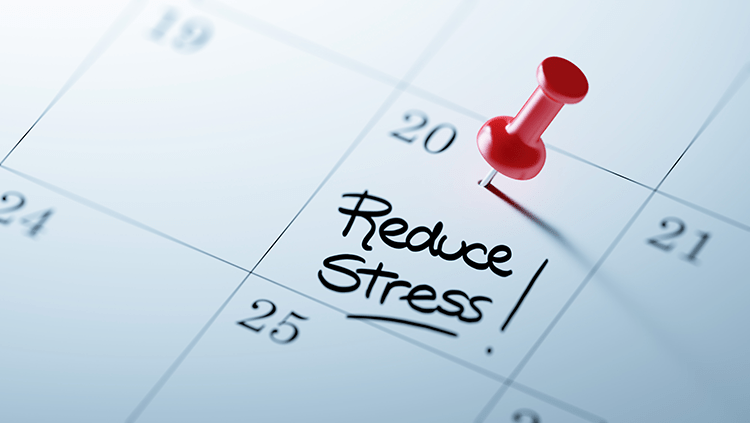It goes without saying that life in the 21st century is full of stress that our grandparents and even our parent’s generation didn’t have to deal with. We don’t want to stress you out even more, but let’s take a look at the numbers and you’ll see what we mean. In recent years:
• 77% of people report regularly experiencing physical symptoms caused by stress;
• 73% of people report regularly experiencing psychological symptoms caused by stress;
• Almost half of those surveyed (48%) feel their stress level has increased in the past five years; and
• 76% of people report that money and work were the leading causes of their stress.
While the forecast for stressful situations may seem bleak, it doesn’t have to be that way. Many people are now taking a cue from naturopathic doctors who have sought for years to determine what the underlining root causes are of poor health only to realize that many of these are inter-related. For instance, stress doesn’t just manifest itself as a feeling of anxiety or even depression; it can account for physical symptoms such as fatigue, headaches, stomach and digestive issues, tension, and even decreased libido as well as a general irritability and anger. All of these issues could be alleviated if the root cause—stress—were addressed. This issue also doesn’t just affect the stressed out employees of businesses—the businesses themselves are losing $300 billion annually in lost work and health care costs. So how do we fix this?
In a recent interview with Dr. Tyna Moore, Dr. JoAnn Yánez, executive director of the Association of Accredited Naturopathic Medical Colleges, discussed how stress can adversely affect the best laid plans. While commercials may want you to feel like you must do it all, there are better ways of dealing with daily stresses. Here are a few tips Dr. Moore and Dr. Yánez shared:
Break things down.
One of the biggest feelings associated with stress is that you feel like you are overwhelmed and you can’t focus because you don’t know where to start. The solution to that is to break your main tasks and goals into smaller ones. Once you have broken it down, create a checklist. This serves a two-fold purpose: (1) you can physically see what it is you need to do, and how it fits into the larger plan and, (2) checking it off as you go gives you a feeling of accomplishment that helps motivate and not discourage you. As Dr. JoAnn Yánez says to her patients, “How do you eat an elephant? One bite at a time.”
Work on nutrition.
A lot of people realize that their physical health impacts their stress level, which, in turn, only worsens their physical health. But many are also daunted by the idea of trying to fix their problem by eating healthier and exercising. So take a cue from the previous tip and focus on one area. Start with eating healthy. If you get your nutrition under control by eliminating refined foods full of processed chemicals, then you will see a turn around in your long-term energy level. This will then let you handle your stress levels better, but also help you towards the next step in fixing your overall health—exercise.
Get moving.
Yes, it is true that one of the best ways to overcome stress is to hit the gym and take out all of your aggressions and anxiety on a punching bag. But that’s a pretty tall order when stress has you so tired, all you feel like doing is going home and staring at the ceiling in a fit of anxiety and depression. But if you can get your energy level up with good nutrition, the next step is exercise. This releases endorphins that will absolutely help you handle your stress. Dr. Yánez also points out there is a secret way that many people don’t think about getting themselves active—get a pet. Those with animals tend to be more active because the pet gives them extra encouragement to either play around, throw a ball, or go for a walk. There is even something therapeutic about petting an animal and having it curl up with you that can help your stress.
Find your happiness.
There’s one area that is going to really go a long way towards addressing stressors. According to Dr. Yánez, “we’ve talked about stress and…nutrition and movement, but I think at the end of the day, it’s happiness.” Stress will literally melt away if you find what fills you up with that personal joy and fulfillment that makes your heart feel warm. Social support is a strong indicator of ability to manage stressful situations. You’ve probably heard about “going to your happy place.” Your place of happiness can be rolling around on your apartment floor playing with your dog or going for a walk in the neighborhood with your children. It can be calling up a loved one and talking about inconsequential matters or going out for a bite to eat with a long-time friend. If there is something that brings a smile to your face when you think about it, then that’s what you need to focus on in your life.
Stress does not have to be a life-ending or life-altering problem that keeps you awake at night with so much anxiety that you can’t enjoy the simple pleasures of the day. Instead, it is possible to conquer stress so you can live your life to the fullest and enjoy every single day as best you can. If you’d like to find a licensed naturopathic doctor to help with stress related health concerns, in the United States use this link from our friends at the Institute for Natural Medicine and for our Canadian friends, please use this link from The Canadian Association of Naturopathic Doctors.








